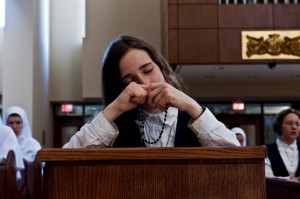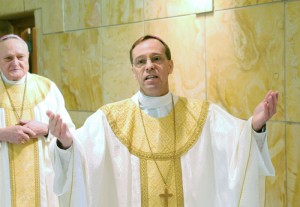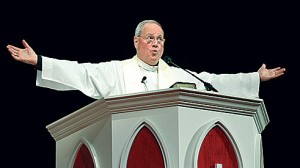 Archbishop Timothy M. Dolan of New York gave a stirring homily last month at the massive, sixteenth annual Atlanta Eucharistic Congress, which this year was devoted to vocations. Here are some of his comments, as reported by the Georgia Bulletin:
Archbishop Timothy M. Dolan of New York gave a stirring homily last month at the massive, sixteenth annual Atlanta Eucharistic Congress, which this year was devoted to vocations. Here are some of his comments, as reported by the Georgia Bulletin:
Archbishop Dolan said, “The harvest is abundant and vocations come from the Eucharist.”
“When we gather before the Eucharist we are in a posture of discipleship,” he said, like Mary, the model of attentiveness to God’s word and acceptance of God’s will.
“Once again we can picture ourselves walking on the shores of the Sea of Galilee and hear Jesus say, ‘Follow me.’ Once again we can watch in awe as he raises the son of the widow of Naim . . . and feeds the 5,000. . . . As we gather in front of the Eucharist, we are in a posture of discipleship, and from that there is a great harvest.”
At the Eucharist, he added, it is “dramatically evident” that “Jesus and His Church are one.”
When Saul, who had persecuted Christians, was knocked off his horse, he heard Jesus say, “Saul, Saul, why are you persecuting me?” Archbishop Dolan pointed out. “Christ identifies Himself with His Church. Jesus and His Church are inseparable.”
“Today, we have people who say, ‘I want Christ without the Church,’” he said. “We say, ‘Impossible.’”
“Jesus brings baggage and that baggage is His Church,” he added. “We call the Church the bride of Christ . . . the mystical body of Christ. . . . The bride is not always beautiful. The body is not always sleek. . . . Yes, there is something wrong with us. That is why we need Jesus, that is why we have a (Church) family.”
“Love for Jesus and His Church must be the passion for your lives,” he said.
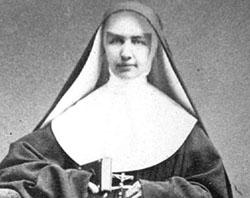 Last May we noted
Last May we noted 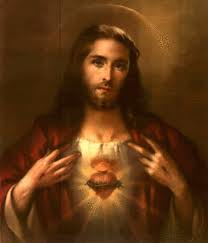 I encourage our readers to check out
I encourage our readers to check out 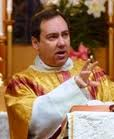 Fr. Z
Fr. Z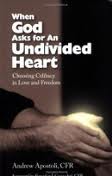 For those looking for answers to many practical questions about celibacy, we heartily recommend
For those looking for answers to many practical questions about celibacy, we heartily recommend  The Catechism of the Catholic Church is often touted as an excellent resource for Scripture study because of the extensive biblical references. I find that the Catechism is also good for word studies as well.
The Catechism of the Catholic Church is often touted as an excellent resource for Scripture study because of the extensive biblical references. I find that the Catechism is also good for word studies as well.